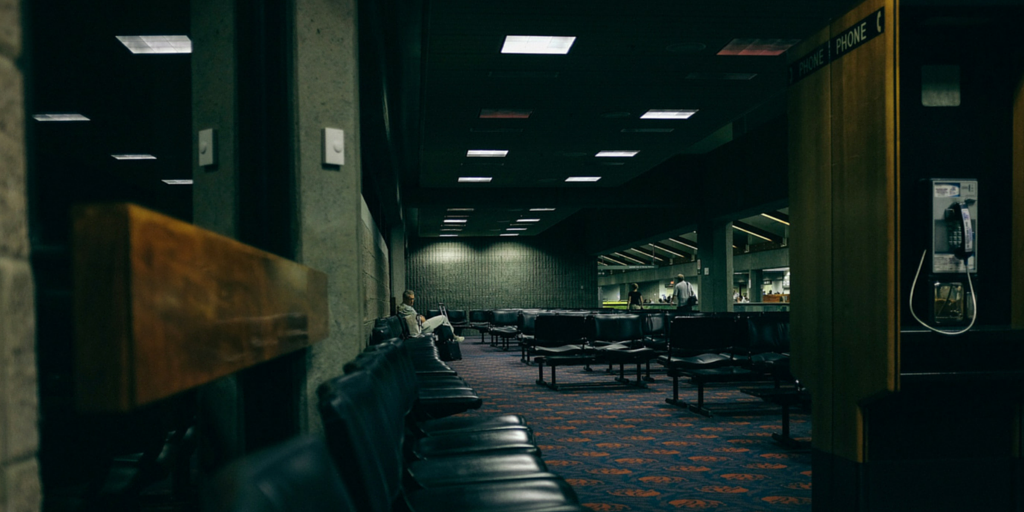In this season of Advent we learn about waiting. Waiting is painful. It brings anxiety and sometimes causes us to wonder where God is or if he cares.
The prophet Malachi spoke of the Messiah’s coming in an eponymous Old Testament book: I have loved you, saith the LORD…Behold, I will send my messenger, and he shall prepare the way before me saying ‘the Lord, whom ye seek, is coming to his temple, for he brings a new covenant, a new day of delight. Will you stand with him when he appeareth? For his message is like a refiner’s fire’ (selections, paraphrased).
Imagine being the Jewish people and hearing these words of promise–the coming of a new day, a new hope. Then, suddenly, silence. After these words from Malachi there was cold, tortuous silence for 400 years. Between the Old Testament and the New Testament it seemed as if God had disappeared. Nothing was spoken, and nothing moved.
Jesus Did Not Arrive into a Quaint Storyline
There were thousands of people hanging on Malachi’s words, people who, ultimately, would not see them fulfilled. There are no easy answers as to why God would take his time. In our emotional economies this is not OK. In our demand for immediacy there is no space and no purpose for waiting. What we need, what we long for, must come on our terms and on our timelines. If we are made to wait too long we’re prone to move on. We become cynical or pick another course.
By the time Emmanuel arrived, those looking for the Messiah had been whittled down to a small remnant. Few were looking any longer. Many had filled in the silence with their own agendas and demands. During Advent we are challenged with the complexity of waiting. We are confronted with our own character, our own faithfulness, and our own expectations. This is the challenge of waiting: “Why would God makes us wait for what is good?”
[Tweet “Why would God makes us wait for what is good?”]
During Advent we ponder the places in which we find ourselves. We have been offered a new purpose, but it is not one without pain and paradox. We are given vision for a Kingdom future, yet we are weighed down by the obstacles of today. In Advent, our lives are a mix of delight and despair. We are exposed every day to the merging of brokenness and beauty.
As we light the Advent candles, let us consider what it is we await. Let us consider the kind of people we desire to be as we wait. To hold on to hope is to have faith that the Spirit of God is working in the depths of our character while we wait.
A Community Prayer for Waiting
When we are heavy with sorrow,
let us cling to a whispering hope.
When we are deep in the night,
let us not forget the light we’ve once seen.
When we are exhausted from waiting,
let us find strength in each other.
Like the Remnant of Israel, teach our hearts how to wait.
When we are hardened by conflict,
let love interrupt our bitterness.
When we are frightened by scenarios,
let us receive wisdom from each other.
When we are haunted by failures,
let grace heal our self-inflicted wounds.
When we are dismal and defeated,
let faith be our nourishment.
Like the Remnant of Israel, teach our hearts how to wait.
When we are weary and complaining,
let our hearts discover perspective.
When we are apathetic and clumsy,
let deep apologies flow from our lips.
When we are dashed by disappointments,
let us find footing to press forward.
Like the Remnant of Israel, teach our hearts how to wait.
We are sheep who wander in the waiting,
but the Shepherd knows our names.
We are strangers without a country,
but the Kingdom of God is our true home.
In this time of great meaning,
in the stillness of Advent,
birth new patience,
give us grace for the days before us.
In the name of the Father,
the Son and the Holy Spirit,
Amen.
[Tweet “”A Community Prayer for Waiting” by @danwhitejr”]
Learn How to Wait Well in a Community of Missional Church Planters
This article has been adapted from an earlier posting on my blog.
Share this Post

